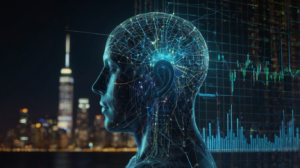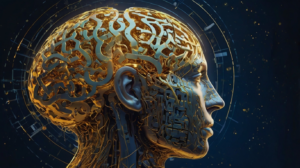
The entertainment industry is evolving at an unprecedented pace, with artificial intelligence (AI) playing a crucial role in reshaping filmmaking. From CGI characters to AI-generated voices and deepfake technology, AI actors are becoming more realistic and integral to modern cinema. But does this mean AI will replace human actors? Let’s explore the impact of AI actors in movies and whether Are AI Actors the Future of Filmmaking?
The Evolution of AI in Cinema
AI has been a part of filmmaking for years, enhancing visual effects, animation, and post-production. The use of AI in films dates back to digital de-aging techniques, CGI characters like Gollum in The Lord of the Rings, and AI-powered VFX used in The Irishman. However, recent advancements have taken AI to a new level where it can create fully digital actors that can act, speak, and even emote convincingly.
Notable Examples of AI in Films
Several movies have already experimented with AI-generated characters:
- Deepfake Technology – Films like Rogue One: A Star Wars Story recreated late actor Peter Cushing as Grand Moff Tarkin using deepfake technology. Carrie Fisher’s younger version was also digitally recreated.
- AI-Generated Voices – James Earl Jones allowed AI to replicate his iconic Darth Vader voice in Obi-Wan Kenobi.
- Virtual Actors – Films like Gemini Man used digital doubles, where a young Will Smith was created using AI-powered CGI.
- Fully AI-Generated Short Films – OpenAI and DeepMind have developed AI capable of generating scenes, voices, and even scripts, such as in the experimental short film The Frost.
The Advantages of AI Actors
1. Cost Efficiency
Hiring big-name actors comes with hefty salaries and long-term contracts. AI actors, once created, can be reused without salary hikes, on-set demands, or contract disputes.
2. Eliminating Scheduling Conflicts
Actors’ schedules can delay productions. With AI-generated actors, films can proceed without the constraints of human availability.
3. Reviving Deceased Actors
AI can bring back legendary actors, allowing filmmakers to continue franchises or produce biopics without casting look-alikes.
4. Increased Creative Freedom
Directors can modify AI-generated characters in real-time, change their performances, and fine-tune facial expressions without reshooting scenes.
5. Enhancing Visual Effects
AI can make de-aging, digital doubles, and CGI characters more lifelike, improving the overall cinematic experience.
The Ethical Concerns and Challenges
1. Loss of Human Creativity and Artistry
Acting is an art that involves human experience, emotions, and spontaneity. Can AI truly replicate the depth and nuance of human performances?
2. Job Loss in the Film Industry
If AI actors become mainstream, thousands of actors, voice artists, and motion capture performers could lose opportunities.
3. Consent and Likeness Rights
Using AI to recreate deceased actors raises ethical concerns about consent. Should studios be allowed to use an actor’s likeness posthumously?
4. Deepfake and Misinformation Risks
The misuse of AI-generated faces and voices could lead to deepfake scandals, causing harm to celebrities and spreading misinformation.
5. Legal Challenges
Who owns the rights to an AI-generated actor? Studios, programmers, or the families of deceased actors? The legal landscape around AI actors is still evolving.
The Future of AI Actors in Cinema
While AI actors are unlikely to replace human performers entirely, they will play a significant role in future filmmaking. AI-generated actors may be used for:
- Supporting roles and background characters
- Digital de-aging and CGI enhancements
- Reviving classic actors for limited roles
- Creating fully digital movies alongside human-led productions
The Role of AI in Scriptwriting and Direction
Beyond acting, AI is making strides in scriptwriting and directing. AI-powered tools can analyze audience preferences and generate scripts tailored for specific demographics. Some filmmakers have even experimented with AI-generated storylines, blurring the line between human and artificial creativity.
Will Audiences Accept AI Actors?
Despite technological advancements, audiences connect with human performances because of their authenticity. While AI can mimic human expressions, it cannot replicate the soul of an actor’s performance—at least, not yet.
How AI Could Complement Human Actors
Rather than replacing human actors, AI could work alongside them, enhancing performances through CGI augmentation, digital doubles, and voice synthesis. For example, AI can help actors de-age, create stunt doubles, or even allow actors to portray characters outside their physical limitations.
How AI is Changing Film Industry Trends
1. AI in Hollywood Movies
The integration of AI into Hollywood movies is reshaping the industry. Keywords like “AI-generated actors,” “CGI characters in movies,” and “deepfake technology in films” are gaining traction in search trends.
2. Impact of AI on Movie Production
The influence of AI in film production is a hot topic, with increased search interest in “AI in filmmaking,” “digital actors in movies,” and “future of CGI in Hollywood.”
3. AI vs. Human Actors Debate
As the AI vs. human actors debate intensifies, terms like “will AI replace actors,” “ethical concerns of AI actors,” and “legal issues with AI-generated characters” are becoming crucial for SEO optimization.
4. Popular AI-Generated Movie Characters
AI-generated characters like the digital versions of Paul Walker in Furious 7 and Carrie Fisher in Star Wars have sparked discussions, making keywords like “AI replacing real actors,” “deepfake in cinema,” and “AI-generated movie stars” trending topics.
Conclusion
AI actors are revolutionizing the film industry, offering cost-effective, flexible, and innovative solutions. However, ethical, legal, and artistic concerns must be addressed before AI actors can become the norm. Rather than replacing human actors, AI will likely serve as a powerful tool, enhancing storytelling rather than taking it over. The future of cinema will be a blend of human talent and AI innovation, creating a new era of filmmaking unlike anything we’ve seen before.
The question remains: Will audiences fully embrace AI actors, or will they always crave the human touch? Only time will tell.















